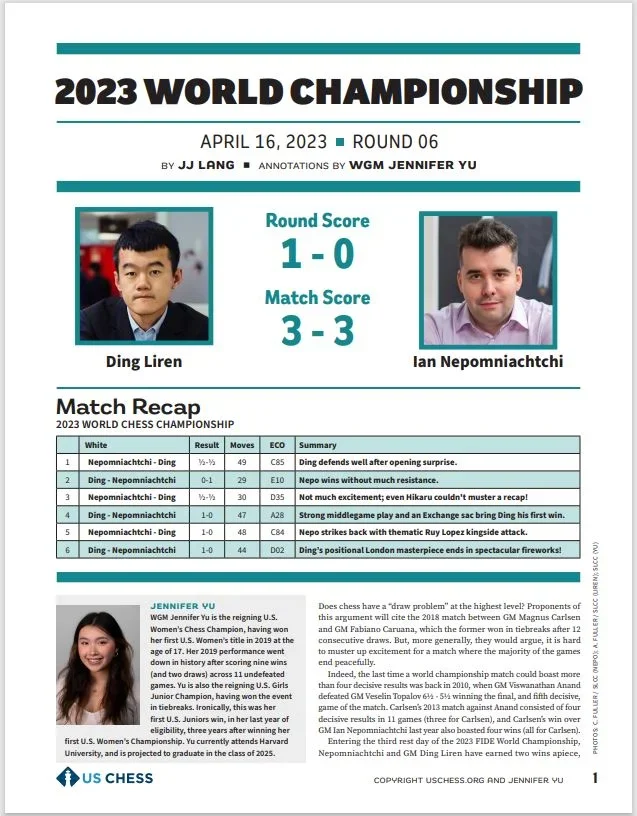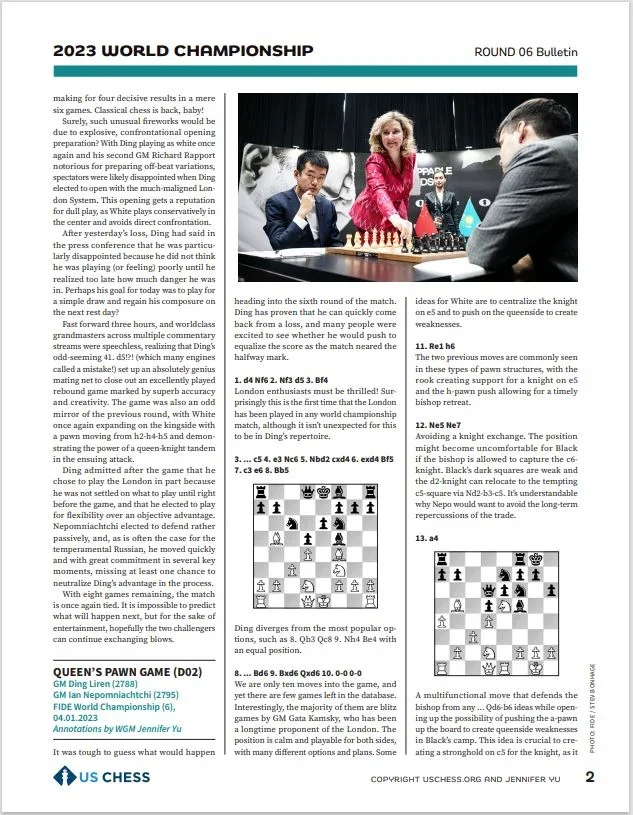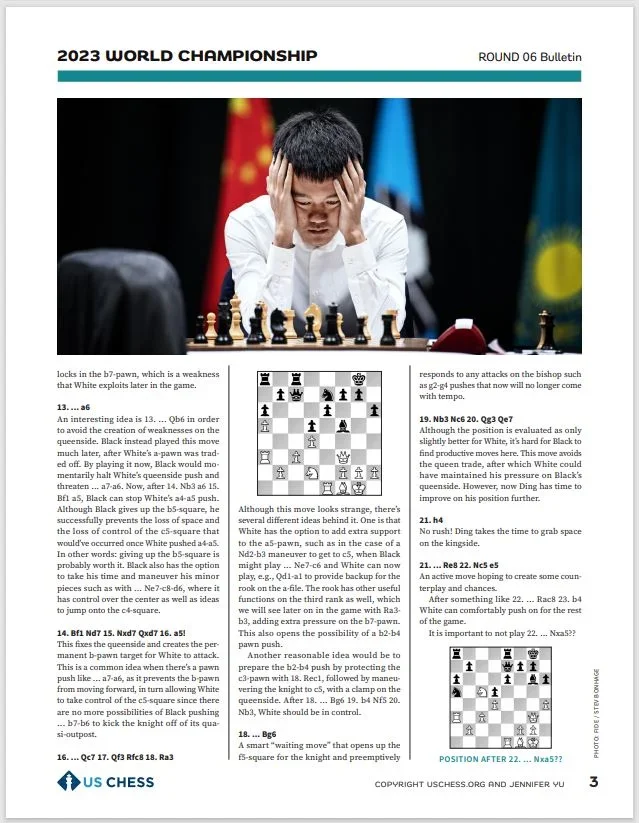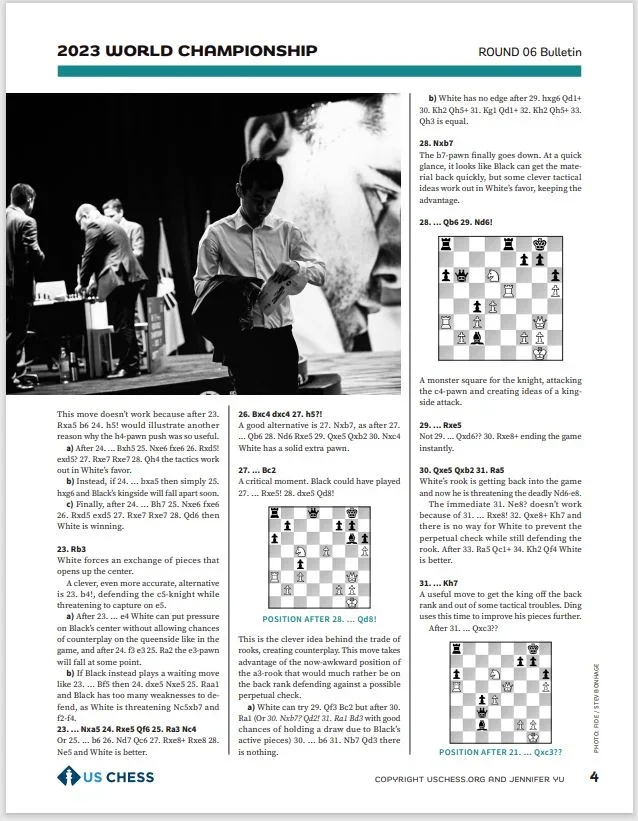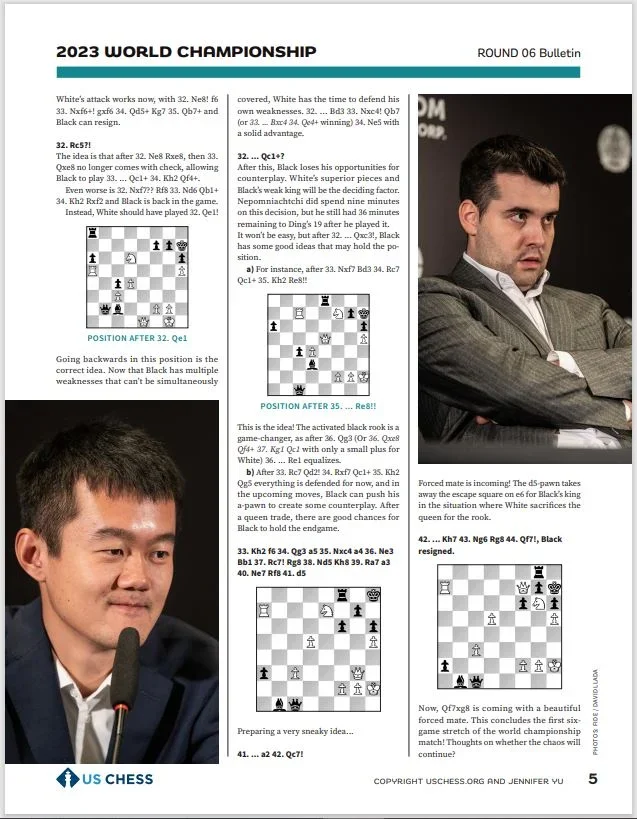Please download our daily bulletin or follow along with WGM Jennifer Yu's annotations below!
Does chess have a “draw problem” at the highest level? Proponents of this argument will cite the 2018 match between GM Magnus Carlsen and GM Fabiano Caruana, which the former won in tiebreaks after 12 consecutive draws. But, more generally, they would argue, it is hard to muster up excitement for a match where the majority of the games end peacefully.
Indeed, the last time a world championship match could boast more than four decisive results was back in 2010, when GM Viswanathan Anand defeated GM Veselin Topalov 6½ - 5½ winning the final, and fifth decisive, game of the match. Carlsen’s 2013 match against Anand consisted of four decisive results in 11 games (three for Carlsen), and Carlsen’s win over GM Ian Nepomniachtchi last year also boasted four wins (all for Carlsen).
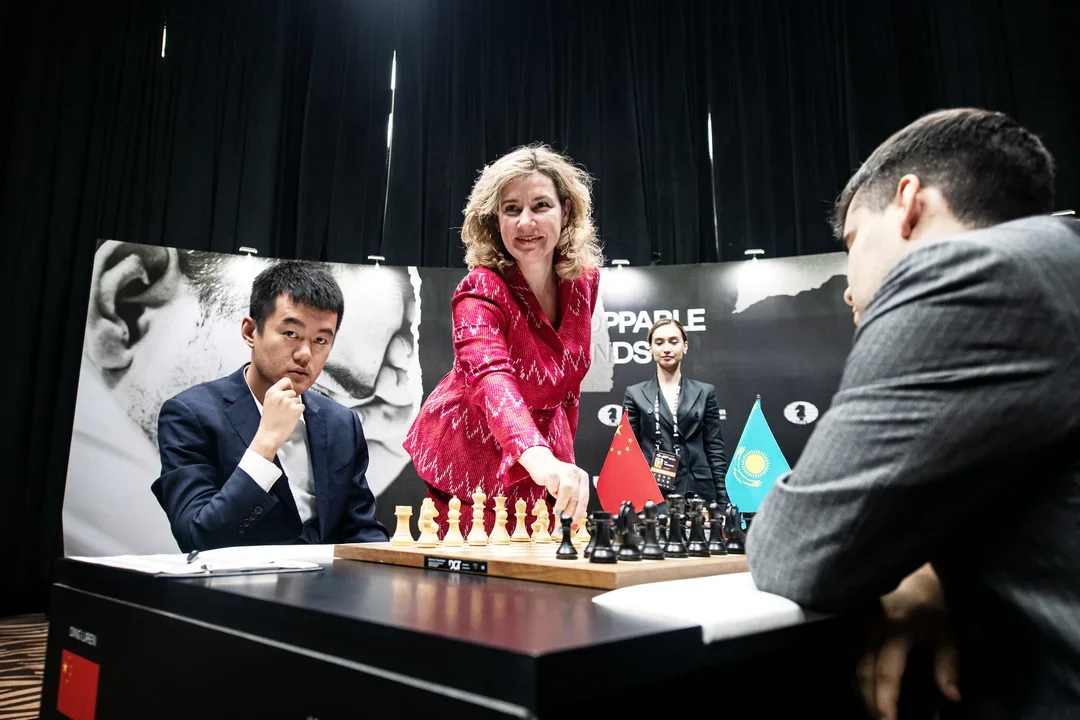
Entering the third rest day of the 2023 FIDE World Championship, Nepomniachtchi and GM Ding Liren have earned two wins apiece, making for four decisive results in a mere six games. Classical chess is back, baby!
Surely, such unusual fireworks would be due to explosive, confrontational opening preparation? With Ding playing as white once again and his second GM Richard Rapport notorious for preparing off-beat variations, spectators were likely disappointed when Ding elected to open with the much-maligned London System. This opening gets a reputation for dull play, as White plays conservatively in the center and avoids direct confrontation.

After yesterday’s loss, Ding had said in the press conference that he was particularly disappointed because he did not think he was playing (or feeling) poorly until he realized too late how much danger he was in. Perhaps his goal for today was to play for a simple draw and regain his composure on the next rest day?
Fast forward three hours, and world-class grandmasters across multiple commentary streams were speechless, realizing that Ding’s odd-seeming 41. d5!?! (which many engines called a mistake!) set up an absolutely genius mating net to close out an excellently played rebound game marked by superb accuracy and creativity. The game was also an odd mirror of the previous round, with White once again expanding on the kingside with a pawn moving from h2-h4-h5 and demonstrating the power of a queen-knight tandem in the ensuing attack.

Ding admitted after the game that he chose to play the London in part because he was not settled on what to play until right before the game, and that he elected to play for flexibility over an objective advantage. Nepomniachtchi elected to defend rather passively, and, as is often the case for the temperamental Russian, he moved quickly and with great commitment in several key moments, missing at least one chance to neutralize Ding’s advantage in the process.
With eight games remaining, the match is once again tied. It is impossible to predict what will happen next, but for the sake of entertainment, hopefully the two challengers can continue exchanging blows.
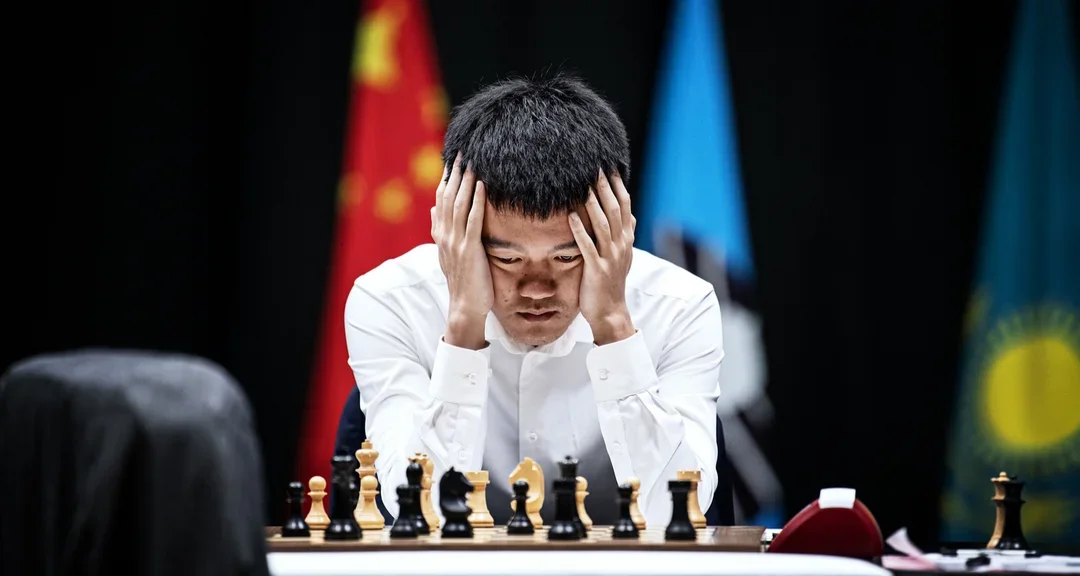
Today's annotations come from WGM Jennifer Yu. Yu is the reigning U.S. Women’s Chess Champion, having won her first U.S. Women’s title in 2019 at the age of 17. Her 2019 performance went down in history after scoring nine wins (and two draws) across 11 undefeated games. Yu is also the reigning U.S. Girls Junior Champion, having won the event in tiebreaks. Ironically, this was her first U.S. Juniors win, in her last year of eligibility, three years after winning her first U.S. Women’s Championship. Yu currently attends Harvard University, and is projected to graduate in the class of 2025.
See all of our 2023 FIDE World Championship coverage.
See results and full schedule on the official website.
Follow our lichess profile for more studies.
Watch live commentary of each round on Chess.com and from FIDE.
Categories
Archives
- January 2026 (10)
- December 2025 (27)
- November 2025 (29)
- October 2025 (39)
- September 2025 (27)
- August 2025 (29)
- July 2025 (43)
- June 2025 (25)
- May 2025 (24)
- April 2025 (29)
- March 2025 (29)
- February 2025 (20)
- January 2025 (24)
- December 2024 (34)
- November 2024 (18)
- October 2024 (35)
- September 2024 (23)
- August 2024 (27)
- July 2024 (44)
- June 2024 (27)
- May 2024 (31)
- April 2024 (51)
- March 2024 (34)
- February 2024 (25)
- January 2024 (26)
- December 2023 (29)
- November 2023 (26)
- October 2023 (37)
- September 2023 (27)
- August 2023 (37)
- July 2023 (47)
- June 2023 (33)
- May 2023 (37)
- April 2023 (45)
- March 2023 (37)
- February 2023 (28)
- January 2023 (31)
- December 2022 (23)
- November 2022 (32)
- October 2022 (31)
- September 2022 (19)
- August 2022 (39)
- July 2022 (32)
- June 2022 (35)
- May 2022 (21)
- April 2022 (31)
- March 2022 (33)
- February 2022 (21)
- January 2022 (27)
- December 2021 (36)
- November 2021 (34)
- October 2021 (25)
- September 2021 (25)
- August 2021 (41)
- July 2021 (36)
- June 2021 (29)
- May 2021 (29)
- April 2021 (31)
- March 2021 (33)
- February 2021 (28)
- January 2021 (29)
- December 2020 (38)
- November 2020 (40)
- October 2020 (41)
- September 2020 (35)
- August 2020 (38)
- July 2020 (36)
- June 2020 (46)
- May 2020 (42)
- April 2020 (37)
- March 2020 (60)
- February 2020 (38)
- January 2020 (45)
- December 2019 (34)
- November 2019 (35)
- October 2019 (42)
- September 2019 (45)
- August 2019 (56)
- July 2019 (44)
- June 2019 (35)
- May 2019 (40)
- April 2019 (48)
- March 2019 (61)
- February 2019 (39)
- January 2019 (30)
- December 2018 (29)
- November 2018 (51)
- October 2018 (45)
- September 2018 (29)
- August 2018 (49)
- July 2018 (35)
- June 2018 (31)
- May 2018 (39)
- April 2018 (31)
- March 2018 (26)
- February 2018 (33)
- January 2018 (30)
- December 2017 (26)
- November 2017 (24)
- October 2017 (30)
- September 2017 (30)
- August 2017 (31)
- July 2017 (28)
- June 2017 (32)
- May 2017 (26)
- April 2017 (37)
- March 2017 (28)
- February 2017 (30)
- January 2017 (27)
- December 2016 (29)
- November 2016 (24)
- October 2016 (32)
- September 2016 (31)
- August 2016 (27)
- July 2016 (24)
- June 2016 (26)
- May 2016 (19)
- April 2016 (30)
- March 2016 (36)
- February 2016 (28)
- January 2016 (32)
- December 2015 (26)
- November 2015 (23)
- October 2015 (16)
- September 2015 (28)
- August 2015 (28)
- July 2015 (6)
- June 2015 (1)
- May 2015 (2)
- April 2015 (1)
- February 2015 (3)
- January 2015 (1)
- December 2014 (1)
- July 2010 (1)
- October 1991 (1)
- August 1989 (1)
- January 1988 (1)
- December 1983 (1)


